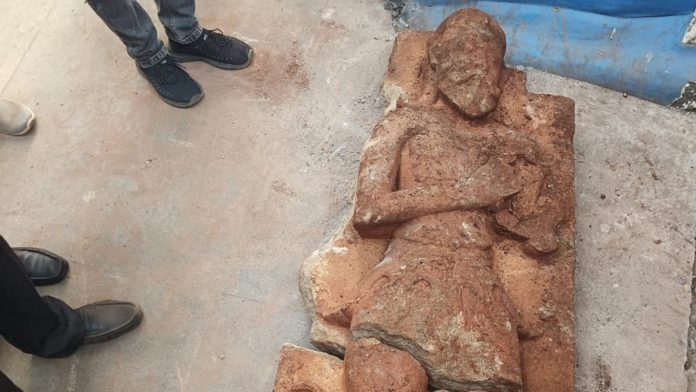PANAJI, May 2 : Workers digging up a pavement in Goa capital Panaji came across a carved stone slab dating back to several hundred years, with historians saying it had links to the time when the Portuguese were building a new capital.
In a social media post, historian Sanjeev Sardesai said a slab of stone/granite was found with the carving of a bearded man playing a harp/violin with a dog near his feet. It was found during excavation and refurbishment of the pavement just outside ‘Barberia’, a heritage barber shop, Sardesai said. As per his “logical theory”, the carved granite slab was part of construction material from the decaying earlier Portuguese capital at ‘Velha Goa’ (Old Goa) that was transported during late 1700s to build the new capital or ‘Nova Goa’ (modern day Panaji), the historian claimed. “There must be hundreds of such pieces discarded during the rebuilding process and buried at various places in Panaji. I know at least three such sites. Any artefact found in Panaji or Goa in general should be the proud possession of every Goan irrespective of faith or ideology as it was carved by a Goan back in time,” he asserted.
Nilesh Desai, Director of the state Department of Archaeology, said they have taken possession of the artefact and it would be sent for expert opinion for details about date etc. Historian Prajal Sakhardande said the artefact could be linked to the ‘Paulists’, missionaries from the Society of Jesus who worked to spread Christianity in Portuguese colonies. “Jesuit missionaries arrived in Goa in the 16th century and they were followers of St Paul. From the headgear (of the artefact), the violin and the presence of dog in the sculpture, it is certain it is a statue of a Paulist,” he said. From the carvings and the type of stone, the artefact dates back to the 19th century when Panaji became Goa’s capital, Sakhardande asserted. (PTI)


